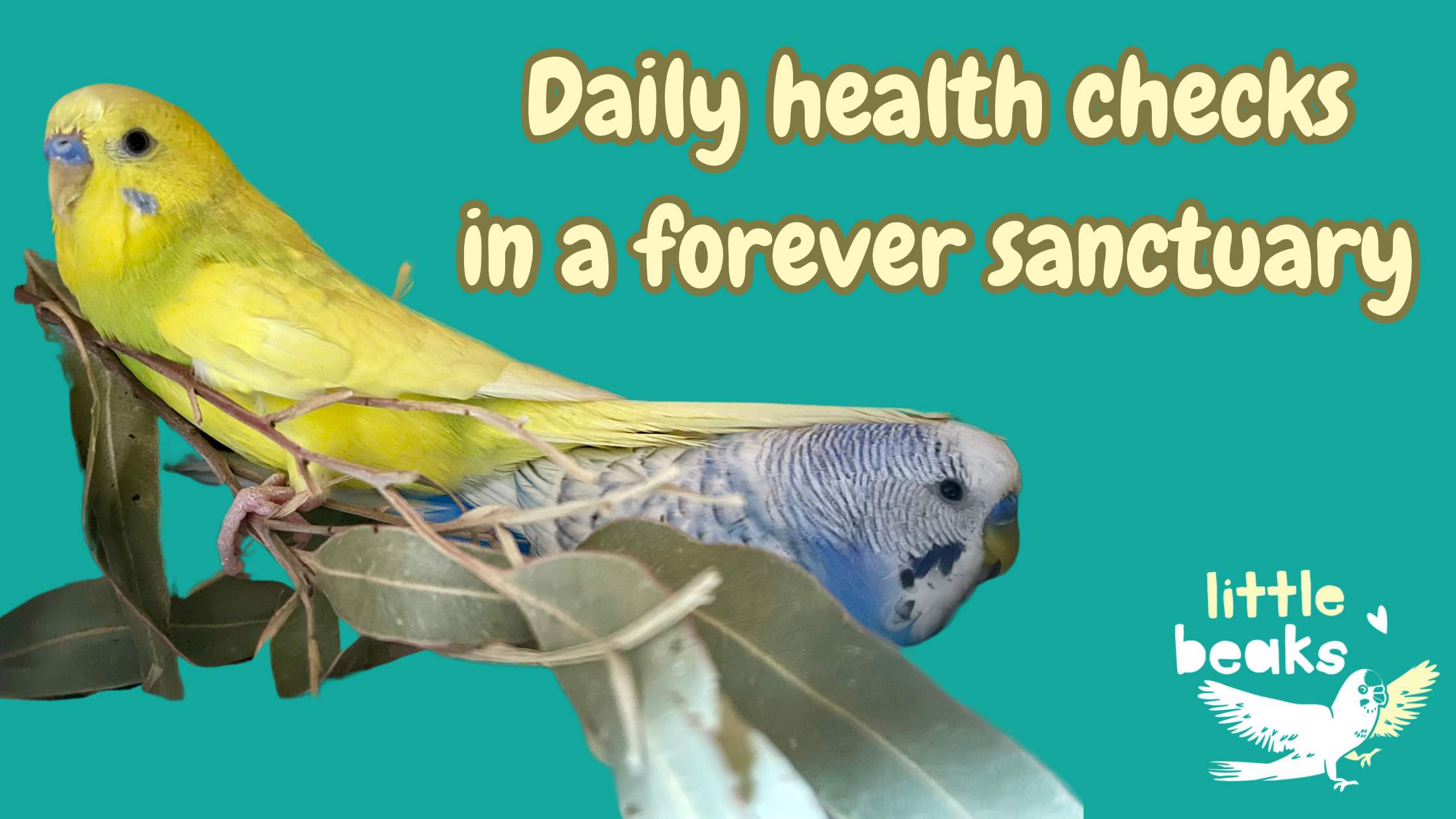How We Monitor Bird Health
At Little Beaks, we care for a large and diverse flock of rescued birds - from tiny finches and canaries to budgies, lovebirds, and other parrots. Monitoring the health of so many birds is one of our most important daily tasks, and it’s something we take seriously.
If you’ve ever wondered how to monitor bird health in a busy aviary setting, this behind-the-scenes look at our sanctuary routines will give you some insight.
Daily Bird Health Checks in the Aviaries
We begin and end each day with dedicated observation.
Watching our birds in their natural rhythm allows us to detect early signs of illness, injury, or stress.
We look for changes in:
Posture and energy levels
Appetite or feeding behaviour
Breathing patterns and vocalisation
Social interactions and isolation
These subtle shifts often give us our first clue that something’s wrong.
Understanding Individual Behaviour and Baselines
Each bird is different. Some are confident and social, while others are quiet and reserved. The key to good bird health monitoring is knowing what’s normal for each bird - especially for those with special needs.
By tracking individual habits and personalities, we can quickly identify when something feels ‘off’.
Why Clean Aviaries and Vent Checks Matter
In large flocks, it’s not always easy to track droppings from individual birds. That’s why, alongside managing healthy, natural aviary floors, we regularly do quick vent checks - a practical way to spot early signs of health problems.
A healthy vent should be:
Clean and dry
Free from staining, swelling, or discharge
Signs to watch for:
Soiled feathers around the vent
Swelling or redness
Foul-smelling droppings
These can point to common issues like parasites, digestive upset, infection, or egg binding.
Monitoring Eating Habits
We observe feeding behaviour daily. A sudden change in appetite - especially from a previously enthusiastic eater - is often a red flag.
We also ensure:
Smaller or less assertive birds aren’t being pushed away by others
Food is tailored to species needs and health status
Soft foods or supplements are available when needed
Hospital-Style Care for Sick Birds
When a bird shows signs of illness or distress, they’re gently moved to one of our indoor hospital cages. These allow for:
Closer monitoring
Warmth and quiet
Medication and soft feeding options
This kind of temporary, individualised care gives vulnerable birds the best chance to recover without the added stress of flock life.
Nail, Beak, and Feather Inspections
As part of routine care, we watch for:
Overgrown nails or beaks
Abnormal feather loss or damage
External parasites (e.g. mites or lice)
We use natural perches and foraging materials to help with nail wear and feather maintenance.
Monitoring Mental and Emotional Wellbeing
At Little Beaks, we recognise that mental health is part of physical health. Birds need:
Flock companionship
Enrichment and stimulation
Safe, predictable routines
Unusual silence, aggression, or withdrawal are all signs we take seriously.
Veterinary Support and Proactive Care
While we manage most of our bird health checks in-house, we work with trusted avian vets in Perth for diagnostics, treatment plans, and urgent interventions.
We never hesitate to escalate when needed — because early action often means better outcomes.
Why It Matters
Caring for a flock - especially one with diverse ages, species, and needs - means learning what’s normal for each bird and noticing even the smallest changes. At Little Beaks, daily observation is one of our most powerful tools.
Whether it’s a tiny canary or a senior weiro, every bird matters. We believe no bird should suffer in silence — and through daily care, intuition, and compassion, we do our best to make sure no bird goes unnoticed.
As always, if you have any concerns about your bird’s physical or mental health, please consult an avian vet. Their specialised knowledge is essential to ensuring your bird gets the right care, at the right time.

